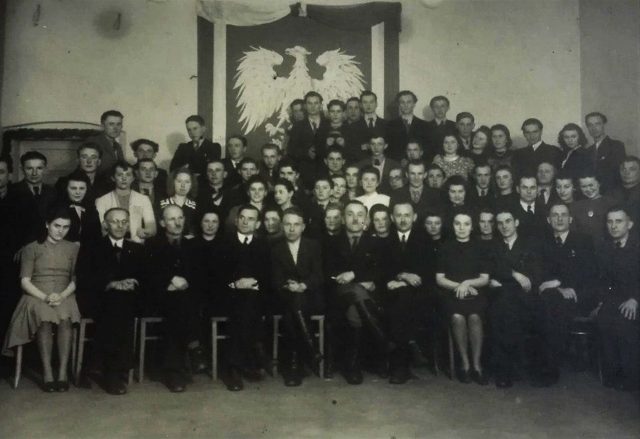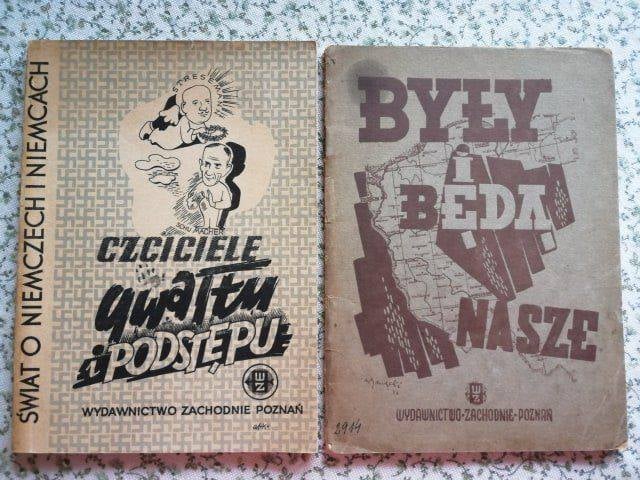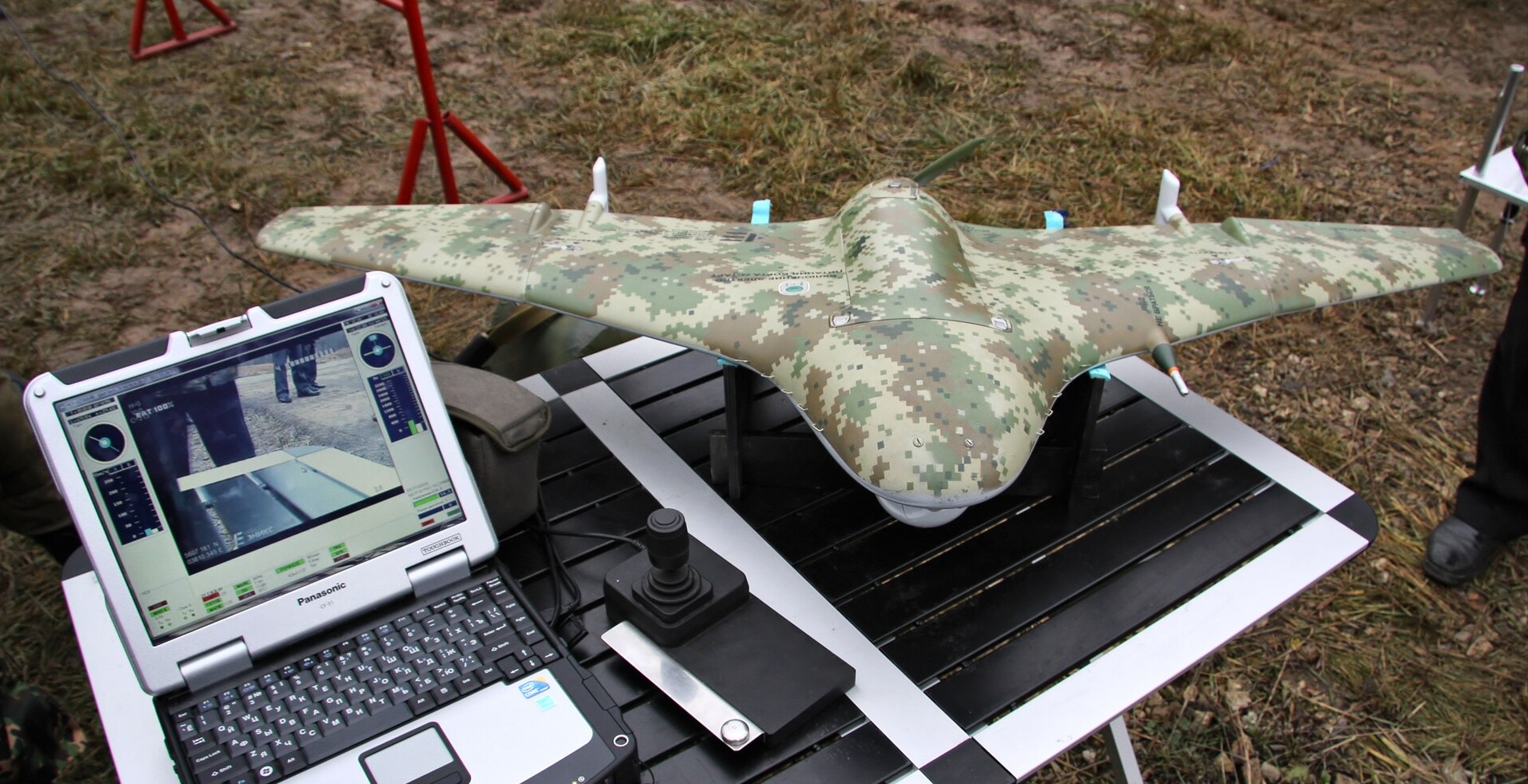In the home library I found an different position published by the People's Institute of Education and Culture – the Faculty of Books and Reading. This is simply a description of books published in 1945 and early 1946 in postwar Poland. The work is entitled “555 books issued in the post-war period”, and its authors are highly well-deserved for Polish librarianship Mr. Wanda Dąbrowska (1884-1974), Jadwiga Czarnecka (1914-2008) and Józef Słomczewska (1907-1989). The book shows the strength of the spirit of the nation. In this short and highly hard time more than half a 1000 books were published in Poland.
Antoni Macierewicz erstwhile stated that it seemed to be mainly communist propaganda and classicals of this thought. For more than 5 100 books issued at that time 9 items, which could be considered by force as communist propaganda. We find only 3 positions of Frederick Engels, 3 positions of Charles Marx, 1 their common position, 1 by Józef Stalin and 4 positions by Vladimir Lenin. There's quite a few propaganda, but there's quite a few land that's been recovered and captured. Which was right and glorious. Among the authors are Eugeniusz Kwiatkowski, Władysław Jan Grabski, Antoni Wrzosk, Kazimierz Piwarski, Kazimiera Clementina Kutrzebianka, Eugeniusz Romer and Tadeusz Lehr-Spławski.
Much of the published books are intended for children and young people. We find here, among others, Helena Boguszewska, Gvidon Miklaszewski, Jan Brzechwa, Alexander number Fredra, Maria Konopnicka, Rudyard Kipling, Gustav Morcinka, Ewa Szelburg-Zarembina and Helena Zakrzywska.
The Polish classics department is impressive. It is, of course, Adam Mickiewicz, Stanisław Wyspiański, Cyprian Kamil Norwid, Juliusz Słowacki, Zygmunt Krasiński, Henryk Sienkiewicz, Boleslaw Prus, Józef Ignacy Kraszewski, Zofia Kossak, Artur Oppman, Ignacy Chrzanowski, Karol Bunsch, Jerzy Andrzejewski, M. Dąbrowska. I did not find any interesting books by Stanisław W. Reymont. The alien classical is besides present, but much more modest – Géza Gárdonyi, Jack London, Philip Gibbs or Ferenc Molnár. The books that had previously been published in the General Governorate in Polish were free from Nazi or anti-Slavic propaganda. Examples of this are the positions for children: “The Black of the large Owl” or “How the leprechauns for Andrzejek did the scooter”.
In addition, there is simply a rich offer for different philosophies and social sciences. We find books by Father Jack Woroniecki, Bogdan Suchodolski, Stanisław Kaczorowski, Zygmunt Felczak, Konstanty Grzybowski, Stefan Mossor, Bolesław Drobner. A very wide offer concerning pedagogy, language, law, science, Catholic religion, fine arts, geography (including maps) or music. Solid elements, dictionaries, lexicons and encyclopedias were released. I completely forgot that already in early 1946 Ksawery Prószyński published his very crucial work “Margrave of Wielopolski”.
A separate department is history, dominated by camp memories (Helena Boguszewska, Michał Boruchowicz, Krzysztof Dunin-Wąsowicz, Fr Augustyn) and guerrilla-front memories (Zofia Petersowa, Janina Broniewska, Jerzy Kirchmayer) These war-related ones are peculiarly valuable due to the fact that they are fresh accounts of direct participants. The second field of books concerns the lands recovered and captured (Kazimierz Kolańczyk, Tadeusz Manteuffel-Szoege, Zygmunt Wojciechowski, Karol Marian Więpalski, Józef Widajewicz). Among the authors we see nationalists associated during the war with “Home”.
According to the content, books were primarily intended for recently established libraries and agrarian and urban reading rooms. peculiar care was taken to bring to the earth the recovered and conquered.
I besides have a household memory with the postwar library. In May 1945 my grandma Dorota Boruta (a fewer months later Jastrzębska) taught adult lectures as part of the People's University. In January 1945, the People's University was revived in my household Siemianowice at the initiative of Jan Szczepański's teacher. It was headed by Tadeusz Pronobis. The gathering was held in the Hall of the City Cultural Centre. The gathering was held in 1946 in the lecture hall of the Jan Sniadecki State Secondary School. The People's University besides provided courses for youth and adults. Polish language, stenography, accounting, hosting, gardening, past (Prof. Piszczek), biology (Prof. Haj) and commercial correspondence were taught. Classes were mostly organized in social activity.
Lecturers included Jan Szczepański, Maria Niedniówna, Franciszek Aj and Fr Rudolf Zielasko. Among the lecturers was my grandma Dorota Jastrzębska – then Boruta (sits first in the first row, bright dress), later librarian in Siemianowice. [The library was besides co-founded by my grandmother. Its main organizer is Mr Bytomski. Unfortunately, I don't know his name].
The University of Universal Sciences in Siemianowice was very well-rated, and was a booming facility of this kind in People's Poland. Participants of the courses combined the desire to grow their cognition and attachment to the place of residence. It existed until June 1949, after which it was liquidated. any lecturers were besides banned from conducting classes, and any books had to vanish from the library.
During the ceremony the Hymn of the University of Common in Siemianowice was sung, the author was mentioned Jan Szczepanski and the music was composed by Edward Szymos.
“We go forward together,
The sicklings wielding the rudder,
Stand with us,
When the password rings
Ref. Only work, not miracle
Rebirth From Poverty
And strong religion in the Polish people
Gives a fair order
If you hatred the misery of crying
Do not search faults in others
Stand in ranks with us
And turn your passwords into action
Create a brave fresh world
The Evil Ones Dig a Grave
Let the rape go distant once
And the whip that beat the human race”
In the first picture, the above mentioned publication. In the second picture, my grandma sits first in the front row. The next photos show interesting finds in my library from 1945 to 1948.



Łukasz Jastrzębski

















